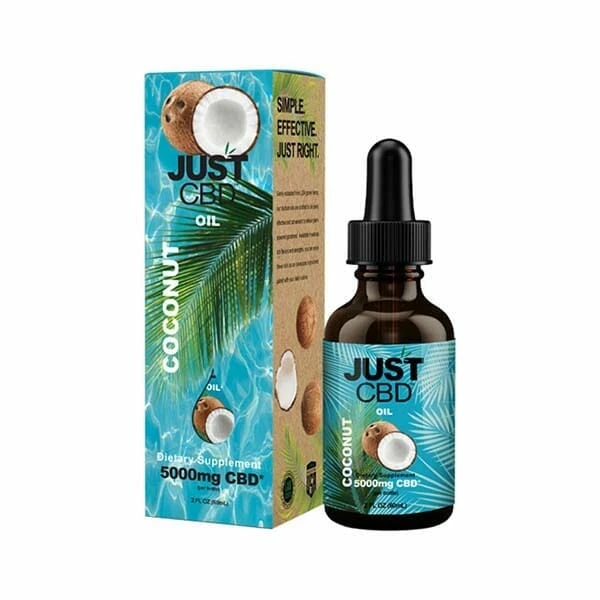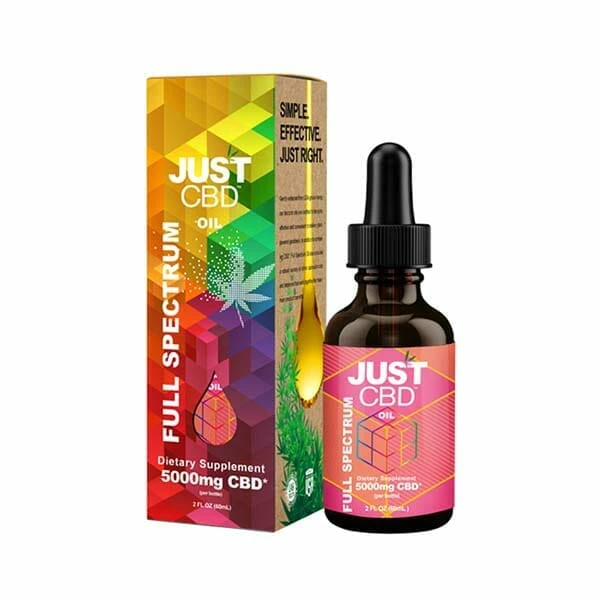Cannabidiol, or CBD, has gained significant attention in recent years for its potential therapeutic benefits, offering relief for conditions ranging from anxiety to chronic pain. One of the most popular forms of CBD consumption is the CBD oil tincture. But what is the science behind these tinctures, and how do they interact with your body to produce their effects? In this article, we’ll delve into the inner workings of CBD oil tinctures and explore how they interact with your body on a biochemical level.
What Is CBD Oil Tincture?
CBD oil tinctures are liquid extracts of CBD, typically derived from hemp plants. These tinctures are generally made by infusing CBD in a carrier oil, like MCT oil (medium-chain triglycerides), olive oil, or hemp seed oil. The CBD in these tinctures can be extracted using various methods, such as CO2 extraction, which yields a pure and potent product.
CBD oil tinctures are commonly consumed sublingually (under the tongue), which allows for quick absorption into the bloodstream. This method bypasses the digestive system, meaning that it can offer faster effects compared to other forms like capsules or edibles.
The Endocannabinoid System: A Key Player in CBD’s Effects
To understand how CBD oil tinctures interact with your body, we first need to look at the endocannabinoid system (ECS), a complex network of receptors and neurotransmitters found throughout the body. The ECS plays a central role in regulating various physiological processes, such as mood, appetite, sleep, pain sensation, and immune response. It is composed of three main components:
- Endocannabinoids: These are naturally occurring compounds produced by the body, such as anandamide and 2-AG, which help maintain balance (homeostasis) within the body.
- Cannabinoid Receptors: These receptors, primarily CB1 and CB2, are found throughout the body, particularly in the brain, nervous system, and immune cells. CB1 receptors are primarily involved in the central nervous system, while CB2 receptors are more abundant in the immune system and peripheral tissues.
- Enzymes: These enzymes are responsible for breaking down endocannabinoids once they have performed their function.
When you consume a CBD oil tincture, the CBD interacts with the ECS in several ways to influence the body’s systems. Unlike THC (tetrahydrocannabinol), another well-known cannabinoid, CBD does not bind directly to the CB1 or CB2 receptors. Instead, it works more indirectly by influencing the receptors and enzymes in various ways.
How CBD Oil Tinctures Work in the Body
Influencing Cannabinoid Receptors
While CBD doesn’t bind directly to the CB1 or CB2 receptors like THC does, it still has an impact on these receptors. CBD has been shown to enhance the body’s natural endocannabinoids, particularly anandamide, which is often referred to as the “bliss molecule” because of its effects on mood and well-being. Anandamide is broken down by the enzyme fatty acid amide hydrolase (FAAH). CBD can inhibit this enzyme, thereby increasing anandamide levels in the body, which may contribute to feelings of euphoria or relaxation.
In addition, CBD can interact with other receptors beyond the ECS, such as the serotonin receptors (5-HT1A), which play a role in mood regulation. This could explain why many users report experiencing a sense of calm and reduced anxiety after using CBD tinctures.
Reducing Inflammation and Pain
One of the most researched aspects of CBD is its anti-inflammatory and pain-relieving properties. Inflammation is a key factor in many chronic pain conditions, and CBD oil tinctures may help modulate the immune response to reduce inflammation. By interacting with CB2 receptors and other signaling pathways, CBD can decrease the production of pro-inflammatory cytokines, which are molecules that promote inflammation.
CBD’s ability to reduce inflammation makes it a popular option for individuals with conditions such as arthritis, chronic pain, and autoimmune disorders. Additionally, some studies suggest that CBD may interact with the TRPV1 receptor, which is involved in regulating pain perception and body temperature. This interaction could explain the pain-relieving effects that many people experience when using CBD tinctures.
Regulating Sleep and Anxiety
Many individuals use CBD oil tinctures to help manage anxiety and promote better sleep. The interaction of CBD with the serotonin receptors, particularly the 5-HT1A receptor, plays a crucial role in this effect. Research has shown that CBD can enhance serotonin signaling, which may help reduce symptoms of anxiety and promote a sense of relaxation.
In terms of sleep, CBD has been shown to have both sedative and wake-promoting effects, depending on the dose and timing. At lower doses, CBD may help individuals stay awake and alert, while at higher doses, it may promote deep, restorative sleep. This is believed to be related to CBD’s effects on regulating the circadian rhythm, the body’s internal clock that controls sleep-wake cycles.
Neuroprotection and Cognitive Function
CBD oil tinctures may offer neuroprotective benefits as well, particularly for conditions such as epilepsy and neurodegenerative diseases like Alzheimer’s. CBD’s ability to reduce inflammation and oxidative stress, both of which can damage neurons, makes it a promising candidate for protecting the brain.
In addition, CBD’s interaction with receptors like PPARs (peroxisome proliferator-activated receptors) and its effects on mitochondrial function may help support cognitive function. Some early studies suggest that CBD may improve memory and learning, although more research is needed in this area.
Absorption and Bioavailability of CBD Oil Tinctures
One of the key advantages of CBD oil tinctures is their high bioavailability. Bioavailability refers to the percentage of a substance that enters the bloodstream and is available for use by the body. When CBD is taken sublingually, it bypasses the digestive system and liver, which can metabolize and reduce the potency of the compound. As a result, the effects of CBD tinctures can be felt more quickly and at a higher intensity compared to other forms of CBD, such as capsules or edibles.
The sublingual method allows the CBD to be absorbed directly into the bloodstream through the mucous membranes in the mouth. This process is faster and more efficient, with users typically feeling the effects within 15 to 30 minutes.
However, the bioavailability of CBD tinctures can vary depending on factors such as dosage, the individual’s metabolism, and the quality of the tincture. Some research suggests that the bioavailability of CBD tinctures can range from 12% to 35%, which is relatively high compared to oral consumption methods.
Conclusion
CBD oil tinctures offer a fast and effective way to experience the potential benefits of cannabidiol. By interacting with the endocannabinoid system, CBD can help regulate various physiological functions, including mood, sleep, pain perception, and inflammation. While the science behind CBD is still evolving, existing research suggests that CBD tinctures can provide relief for a variety of conditions, making them a popular choice among individuals seeking natural remedies.
CBD Oil Tincture – Coconut

Buy it here: CBD Oil Tincture – Coconut
First off, the CBD Oil Tincture – Coconut is one of those products that really surprises you. I was a bit skeptical at first because, let’s be real, most CBD oils I’ve tried have a bit of a strong, earthy flavor that’s not the most pleasant. But the coconut flavor here is absolutely amazing! It’s subtle, sweet, and definitely not overpowering. It almost feels like I’m taking a tropical vacation with every drop.
The tincture itself has a smooth consistency, and I love how easy it is to use – just a few drops under the tongue, and I’m good to go. I’ve noticed a nice, calming effect after about 15-20 minutes, which helps me unwind, especially in the evenings. I’m not usually a fan of oils because they sometimes leave an oily aftertaste, but this one doesn’t linger and doesn’t make my mouth feel gross afterward.
What I didn’t like though? Well, the dropper can be a bit tricky to fill without spilling, but that’s a minor thing. Also, if you’re not super into coconut flavors, this may not be for you, though I found it to be a pleasant surprise.
Full Spectrum CBD Oil

Buy it here: Full Spectrum CBD Oil
Now, the Full Spectrum CBD Oil is a whole different experience. I really like how versatile this one is – it’s not flavored, so if you’re looking for a more natural taste, this is your go-to. The flavor is a bit more “earthy,” but nothing too intense. It gives you that full, raw CBD experience, which I personally find more effective in terms of the relaxation and focus it brings.
The Full Spectrum blend is perfect for anyone who wants to feel the benefits of not just CBD, but also the other cannabinoids and terpenes that come with it. I’ve felt a stronger sense of relaxation after using this – more so than the coconut-flavored one, which I think is due to the full spectrum effect.
What I didn’t love about this one was the consistency. It’s slightly thicker than the coconut tincture, which makes it a bit more difficult to drop under my tongue. But once again, this is more of a preference thing.
Comparison
If I were to compare the two, here’s how it shakes out:
- Flavor: The Coconut version wins hands-down if you want something sweet and tropical. The Full Spectrum one is more for those who enjoy a more natural, planty taste.
- Effectiveness: Both are effective, but I’d say the Full Spectrum hits a bit harder in terms of relaxation, especially if you’re after the entourage effect (that synergy from all the cannabinoids working together).
- Ease of Use: The coconut one is a bit more forgiving, taste-wise, and easier to get the right amount with the dropper. The Full Spectrum has a slightly thicker consistency, so you might need to shake it more or drop it more carefully.
What are CBD oil tinctures?
CBD oil tinctures are liquid extracts made from cannabis plants, specifically designed to deliver cannabidiol (CBD) in a concentrated form. They are typically taken sublingually, meaning under the tongue, for rapid absorption into the bloodstream.
How do CBD oil tinctures work in the body?
CBD oil tinctures interact with the body’s endocannabinoid system, which regulates various functions such as mood, sleep, and pain. When ingested, CBD binds to receptors in this system, potentially helping to balance these functions and improve overall well-being.
What are the benefits of using CBD oil tinctures?
CBD oil tinctures may help with a range of issues, including anxiety, pain relief, inflammation, and sleep problems. Research suggests that CBD has calming, analgesic, and anti-inflammatory properties, making it a popular choice for many.
How should I use CBD oil tinctures?
To use CBD oil tinctures, place a few drops under your tongue and hold for 30 to 60 seconds before swallowing. This method allows the CBD to be absorbed directly into your bloodstream, offering faster effects compared to other methods.
Are CBD oil tinctures safe to use?
CBD oil tinctures are generally considered safe, especially when taken in appropriate doses. However, it’s important to start with a low dose and gradually increase it as needed. It’s always advisable to consult with a healthcare provider, especially if you have existing medical conditions.
Will CBD oil tinctures get me high?
No, CBD oil tinctures do not contain enough THC to produce a high. THC is the psychoactive compound in cannabis, whereas CBD is non-psychoactive and doesn’t cause any mind-altering effects.
How long does it take for CBD oil tinctures to work?
The effects of CBD oil tinctures are typically felt within 15 to 45 minutes when taken sublingually. The exact time can vary depending on factors like metabolism, dosage, and individual body chemistry.
Can I use CBD oil tinctures for pain relief?
Many people use CBD oil tinctures as part of their pain management routine. CBD is thought to have anti-inflammatory and analgesic properties that may help alleviate discomfort associated with conditions like arthritis, chronic pain, or muscle soreness.
Are there any side effects of using CBD oil tinctures?
While CBD oil tinctures are well-tolerated by most people, some may experience mild side effects such as dry mouth, dizziness, or changes in appetite. If you experience any discomfort, it’s best to reduce your dosage or consult with a healthcare provider.
How do I choose the right CBD oil tincture?
When choosing a CBD oil tincture, consider factors like CBD concentration, the quality of ingredients, and third-party lab testing for purity and potency. It’s also important to look for a product that matches your personal health needs and goals, whether it’s for relaxation, pain relief, or general
- Fresh Royal Navy sex scandal as training base dramatically ‘locked down’ over revenge porn claims - May 28, 2025
- Illinois THC Infused Drinks You Should Try - May 23, 2025
- Home Bargains has shoppers racing to nab £3.99 buy to add colour to their gardens & it makes a fab Father’s Day gift too - May 21, 2025






Follow